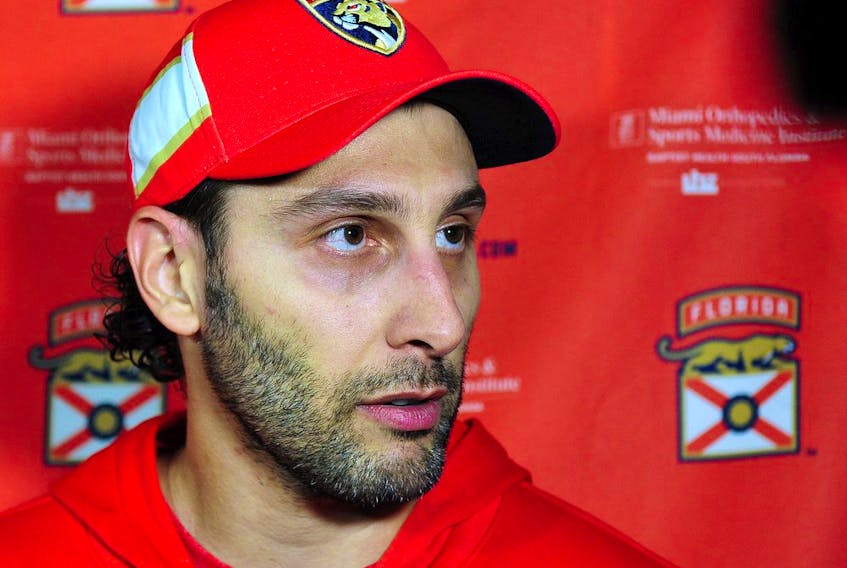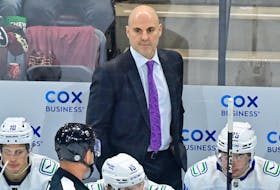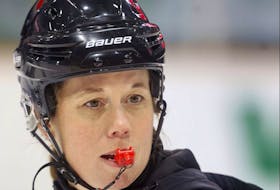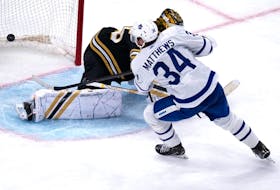In the NHL, “retiring” has become a complex word.
Players with years left on their big-money contracts retire, but they don’t use the word “retire” in order to help their team avoid salary cap punishment.
Chris Pronger, Marian Hossa and Henrik Zetterberg clearly should have “retired” but didn’t officially. They watched their contracts get passed around the league while living the remainder of their careers on long-term injury reserve.
Their contracts were similar to the one held by former Canucks’ netminder Roberto Luongo, with multiple years at the end that were massively reduced in salary, making the annual cap hits lower than they might be otherwise.
I’ve decided to take my talents to a South Beach retirement home ✌🏼 pic.twitter.com/BTuZIo8XT8
— Strombone (@strombone1) June 26, 2019
“Against the spirit of the rules,” NHL commissioner Gary Bettman used to call them.
Until this week, teams had stickhandled around the recapture penalty. Pronger, Hossa and Zetterberg established a way for players to “retire” but didn’t do it officially because there were other ways within the rules to deal with their contracts that didn’t carry outrageous penalties.
There have been two other examples of contracts being hit with the cap recapture penalty — Mike Richards and Ilya Kovalchuk — but both had backstories to them. Luongo’s is the first case of the recapture penalty being applied to a contract that straight up is about a player actually retiring.
You may have heard, the Canucks are bearing the brunt of the Luongo penalty, with three-quarters of the $4 million or so penalty being applied against their own salary cap for the next three NHL seasons.
The reasons for Luongo retiring officially, not simply failing his annual training camp physical and having the contract land on LTIR for three years are so obvious in the short term, you find yourself asking: “Given the other cases where this hasn’t happened, are the Panthers themselves playing within the spirit of the rules?”
Think about it. In his letter to the fans announcing the reasons why he was ending his stellar 20-year NHL career, Luongo listed a collection of physical limitations as the driving force behind his difficult decision.
A few thoughts on my decision https://t.co/LXaLek0gFA
— Strombone (@strombone1) June 26, 2019
So why did Luongo make his retirement official? Quite simply it actually makes life less complicated for Panthers’ general manager Dale Tallon, especially in the short term.
First, of course, there’s the real-dollars savings. Your owner will like that. But second, and more crucially, there’s the cap benefit itself.
Tallon, we know, is pursuing the talented duo of Artemi Panarin and Sergei Bobrovsky. Everyone expects they’ll get big paydays.
The Panthers currently have 14 players under contract listed on their big-league roster. There are a number of younger players on entry-level deals who could start the season on the NHL roster, but the fact remains that Tallon needs to sign more than just Panarin and Bobrovsky to fill out his roster.
He has just shy of $24 million to work with to add six or seven players.
Luongo retiring means that his cap hit of just over $4.5 million — the Canucks had retained $800,000 of his $5,300,000 total cap hit as part of the 2014 trade that sent him back to the Sunshine State — has been replaced by a cap recapture penalty of just over $1 million in the Panthers’ salary cap calculation.
When you’re chasing a pair of players who are likely to sign for close to $20 million combined, having $3.5 million more cap space to play with helps a great deal.
The cap recapture penalty system was created to remove a loophole in contract structures that Gary Bettman didn’t like. Contracts like Luongo’s were said to be cap circumvention, not in the spirit of the rules.
But given the fact that basically every other player in Luongo’s situation hasn’t retired and their contracts are still on the books, the question is: who is circumventing the cap now?
The Florida Panthers are going to benefit by doing so, and the Vancouver Canucks are being punished because of an absurd rule to allow another team’s GM to spend and spend and spend.
Copyright Postmedia Network Inc., 2019









